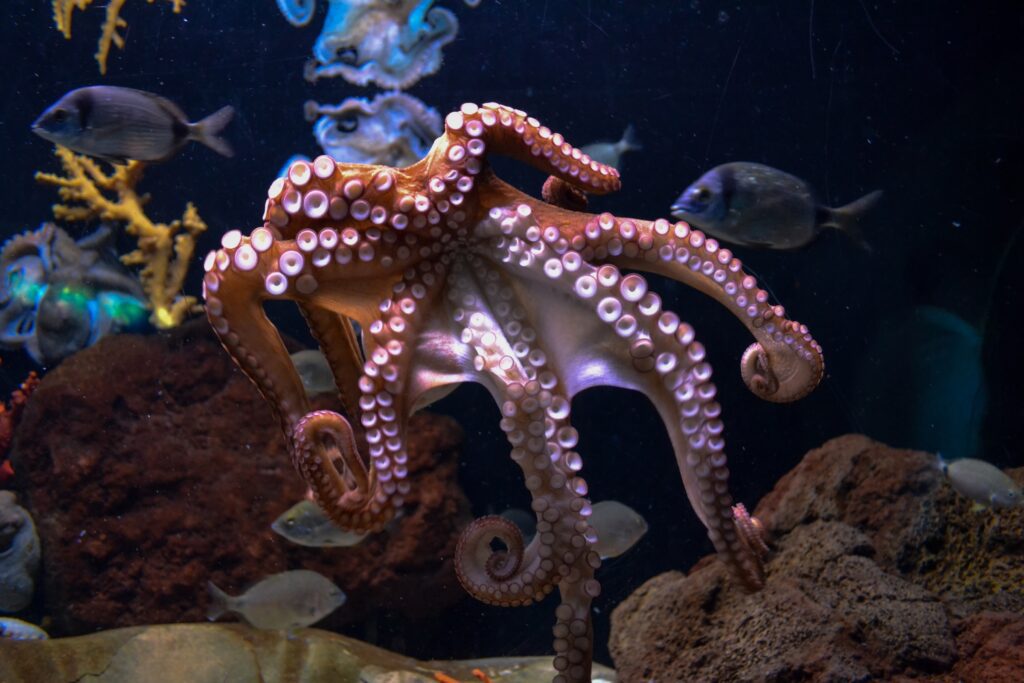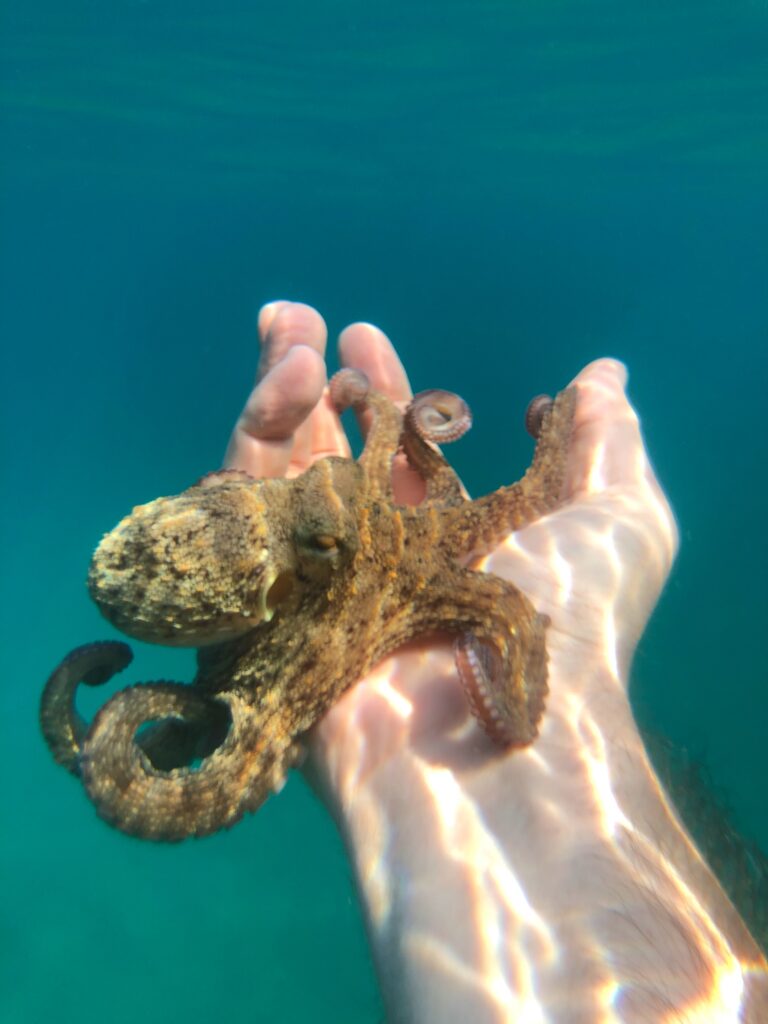The Fascinating Ability Of Octopuses To Taste With Their Limbs
Octopuses, known for their remarkable intelligence and adaptability, possess a fascinating ability to taste with their arms. While humans primarily rely on taste buds located on their tongues, these cephalopods have taken sensory exploration to a whole new level.

This unique characteristic has captivated researchers and unveiled intriguing insights into the complexity of the octopus’s sensory perception.
Octopuses have specialized cells called chemoreceptors that allow them to detect chemical compounds in their environment. These chemoreceptors are not only present in their mouths but are also found on their suction cups and along the length of their arms.
As a result, an octopus can taste substances it comes into contact with using its arms, expanding its sensory experience beyond what is possible for most other creatures.
When an octopus extends its arm to explore an object or its surroundings, the suction cups on its tentacles make contact with the surface. These suction cups contain chemoreceptor cells that can detect and analyze chemical signals present in the substance.

By bringing its arm to its mouth, the octopus can transfer the sensory information obtained from the suction cups to its taste buds, thus “tasting” the object or substance indirectly.
This remarkable ability allows octopuses to gather valuable information about their environment, assess the suitability of potential prey, and identify potential threats. It also enables them to navigate complex underwater terrains and make informed decisions based on the taste cues they receive.
The sensory capabilities of octopuses continue to astonish scientists, pushing the boundaries of our understanding of the animal kingdom. By studying how octopuses taste with their arms, researchers gain insights into the intricate adaptations and evolutionary strategies of these incredible creatures.
